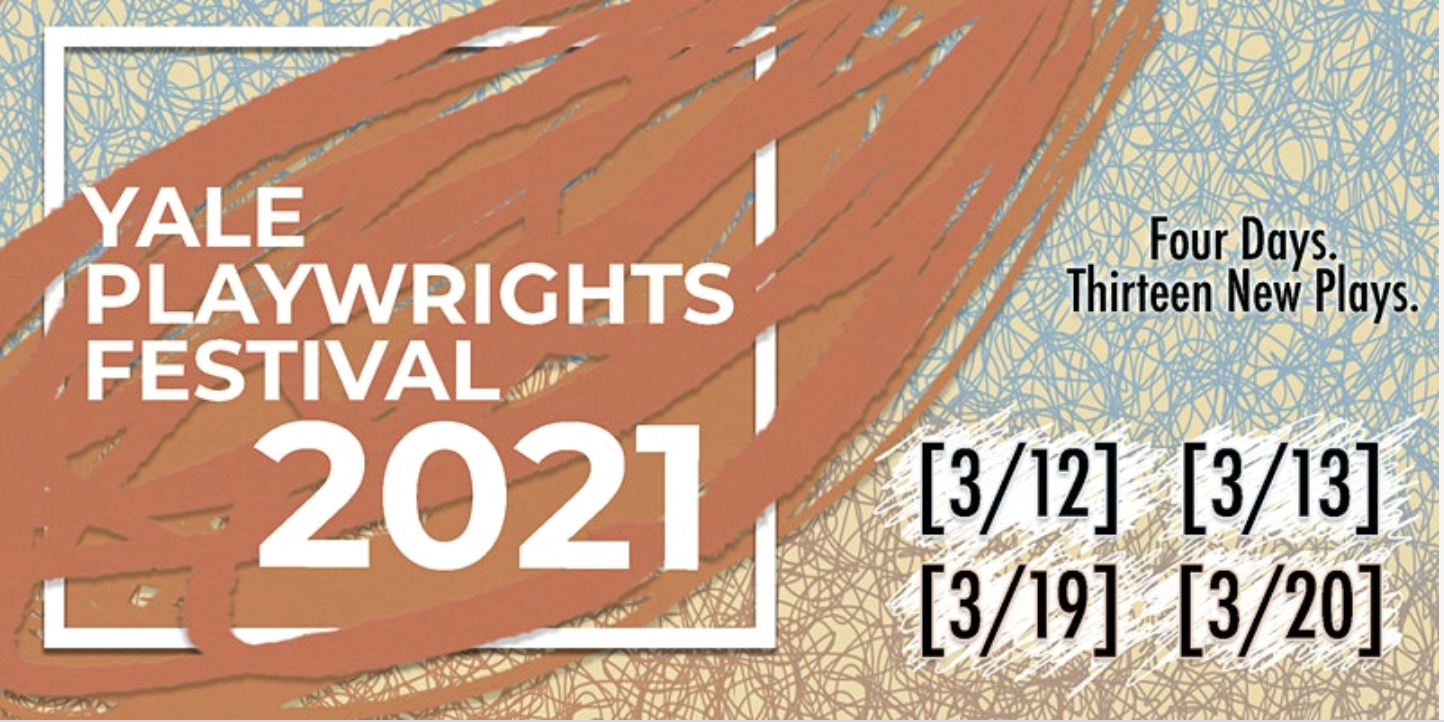
Courtesy of the Yale Playwrights Festival
Over two weekends this month, the Yale Playwrights Festival invited playwrights to present their in-progress plays to a Zoom audience and gather feedback.
During the festival, 13 undergraduates have and will conduct live readings of their plays, on March 12, 13, 19 and 20. The readings are free and open to the public.
“The amount of information that a writer can get just by hearing the actors perform the words that they have written,” said Shilarna Stokes ’94, lecturer in theater and performance studies and a mentor for the festival. “All of that is information that a playwright can’t really get just from having a lot of individual readers.”
The students selected for the festival were each paired with two mentors: a Yale faculty member and a professional not affiliated with the University. The playwrights first worked on their plays with these mentors and then coordinated with a student director and actors for their play’s reading at the festival.
Kevin Tang ’21, one of the festival’s playwrights, is a math and computer science major and first-time playwright. Tang wrote his play, called “Retracing Echoes,” while taking “Advanced Playwriting” with Deborah Margolin, a theater and performance studies professor at Yale. Margolin recommended he submit his play to the festival.
“It is very exciting because I think that there is something that I kind of have wanted to say, and both taking the playwriting class and then thinking about it more in this formal setting has really brought that into focus,” Tang said. “[Retracing Echoes] is a story that I maybe not always knew I wanted to tell, but kind of discovered I wanted to tell through the process of writing and reflecting.”
Tang described his play as an investigation into the role of memory and people’s relationship with remembering. He said the play explores a “bright nostalgia” that he suspects most college students are familiar with, particularly seniors in college like himself.
Tang plans to continue writing even as he pursues a career in math and computer science. Tang said programming and writing a script both require the writer to “know the skeleton of what [they’re] trying to say and where [they’re] going.”
“I like to quip that programming is kind of like writing lines for a computer, so it translates nicely to writing lines for human actors,” Tang said.
Margolin described Tang’s play as “meltingly lovely.”
Ann Zhang ’24 debuted her play titled “It’s Not About Kyle” last weekend. Her play follows protagonists Luce and Kyle — a character that represents Luce’s inner monologue. Since plays rely on dialogue, Zhang said she needed a mechanism to demonstrate Luce’s thought process.
“[Zhang’s] play is hilarious but also really thoughtful, really insightful, surprising, incredibly moving,” Stokes, one of Zhang’s mentors, said. “I knew that it would have a successful reading when it was read yesterday, and it did.”
KG Montes ’22 directed a play called “Jazz” by Zyria Rodgers ’21, which was also read last weekend.
“Jazz” is a play about five women, all of different ages. Montes said these women are “learning to find the joy in the interactions with each other,” “the joy in life” and “learning to live for themselves and for each other,” especially as Black women, “constantly having to bear the weight of the world.”
Montes said she thought the reading went smoothly, but it was difficult for actors to read certain parts of the script over Zoom, including call-and-response sections and duets. Yet she said that the online platform allowed her to work with actors who are currently taking leaves of absence.
Zhang was told that one of the most enjoyable parts of a typical festival was seeing at which moment in the play an audience member might fall asleep. But over Zoom, Zhang was unable to discern this phenomenon, since audience members had their cameras turned off to reduce network lags.
“The laughter was missing,” Stokes said, adding that this was especially difficult in the case of a comedy like “It’s Not About Kyle.” But Stokes noted that though Zoom can alienate actors from their audience, it allows performers and viewers to concentrate in a way in-person performance does not. “There’s no distraction of people walking into the theater late or someone opening candy next to you or lights going wrong.”
According to Julia Titus GRD ’99, a professor of Slavic languages and literatures who served as mentor in the program, it is difficult for an actor to draw energy from the audience on Zoom, particularly when audience members have their cameras off.
Nevertheless, Titus described the virtual festival as “commendable.”
As a mentor, Margolin said virtual theater is only a “mild strain.”
“Of course it’s easier to read the room, it’s easier to see someone fidgeting, it’s easier to watch someone study, when you’re in the room with them,” Margolin said. “But somehow we’ve managed. We have managed to listen — to look at each other.”
The Playwrights Festival was founded in 2003 by theater and performance studies professor Toni Dorfman and Laura Jacqmin ’04.
Annie Radillo | annie.radillo@yale.edu







